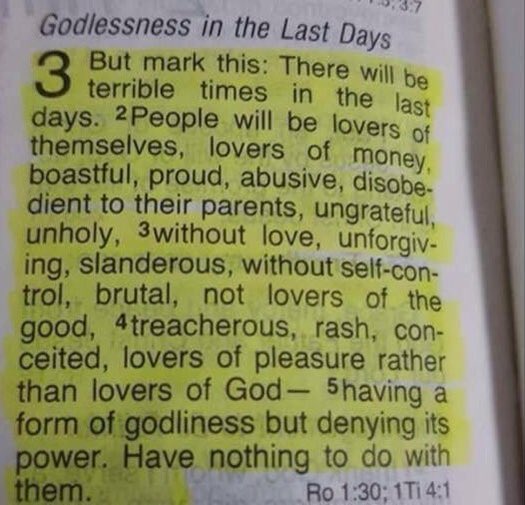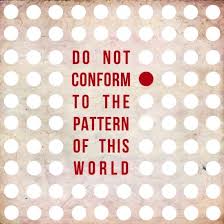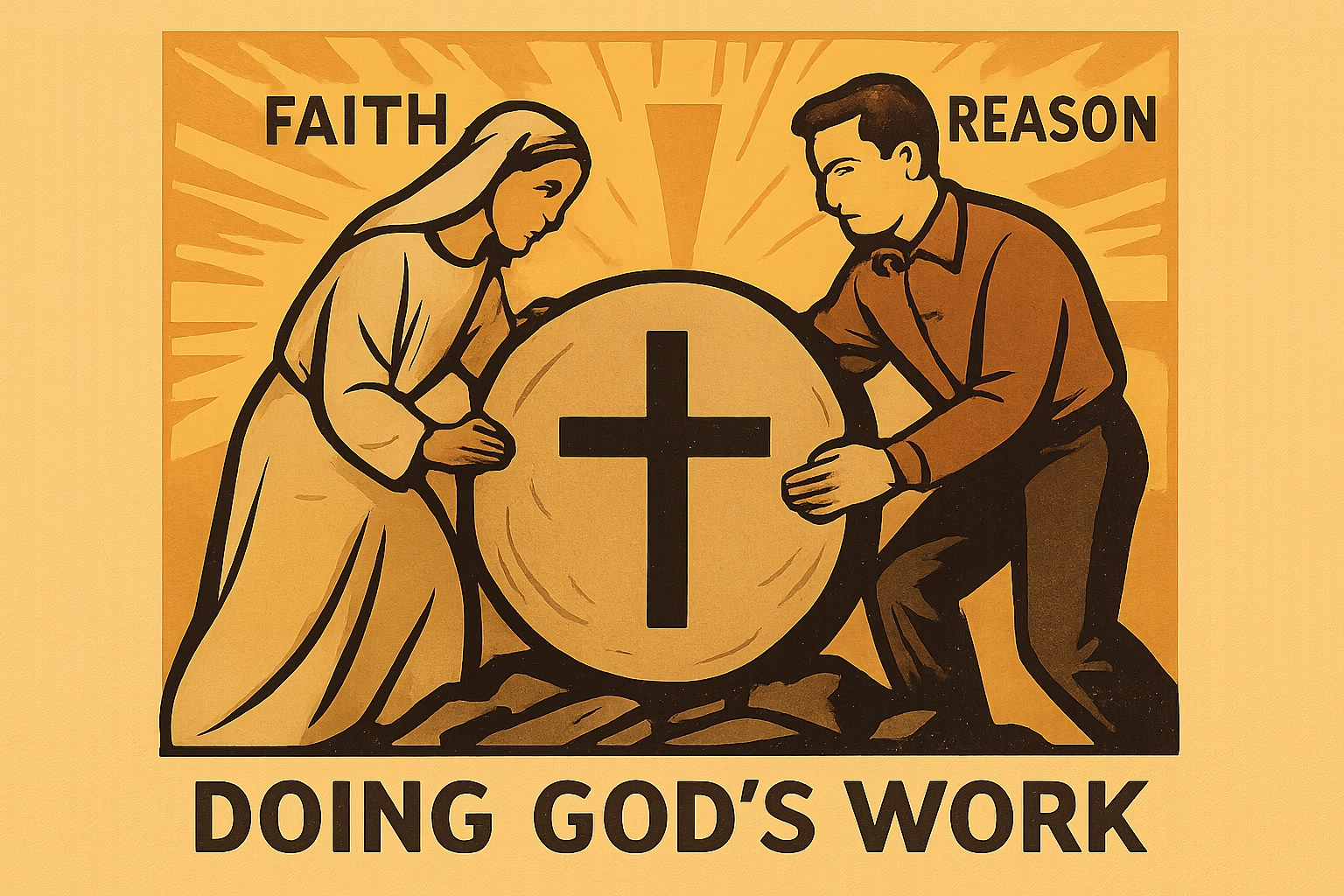Dear friends, do not believe every spirit, but test the spirits to see whether they are from God, because many false prophets have gone out into the world. This is how you can recognize the Spirit of God: Every spirit that acknowledges that Jesus Christ has come in the flesh is from God, but every spirit that does not acknowledge Jesus is not from God. This is the spirit of the antichrist, which you have heard is coming and even now is already in the world. 1 John 4:1-3 (NIV)
2020 has been a rough year for everybody so far, but especially for Truthseekers. The media has degenerated from fake news to absolute lunacy. A pandemic, or at least the fear of one, has gripped the world, but the scientists can’t seem to get their stories straight. Worst of all, opportunists of the lowest caliber have used fear and racial prejudice to turn us against each other.
Why do I say that one is worst of all? Because if we create enemies for ourselves along the lines of racial differences, we will forget that we have a common enemy. Which is exactly what our real enemy wants.
Wondershare Edrawsoft – Up to 70% Off
So, what does John mean when he talks about “testing the spirits?” Some people get a little froke out by this, but it’s not all that weird.
Three years ago, we covered this extensively in the Overcoming the World series. In Part 8, we discussed that when a thought “pops into your head,” it is likely a message from God if it is in line with scripture, illuminates the solution to a problem and leads to a good result for all concerned. If this out-of-the-blue thought does not meet those criteria, it did not come from God. So where did it come from?
The passage above makes clear that deceptive messages are from the spirit of the antichrist. Now this is the spirit of antichrist with a lower-case A, not the big baddie of Revelation (more on that later). John uses this term literally to mean a spirit that opposes Jesus. You can see from this passage that this is the spirit that controls false prophets.
However, the wording above appears at first to be too simplistic. Every spirit that acknowledges Jesus has come in the flesh is from God, and every spirit that doesn’t, isn’t. If discerning the spirits were that easy, then why would we need to test them?
Well, have you seen what’s going on in the Church lately? It mirrors what’s going on in our country. Just as America’s greatest enemy has proven to be from within, so it is with the Church. Atheists are the least of our problems, annoying though they may be. They are a mosquito bite compared to the cancer that is eating away at the Body of Christ from within.
In the Flesh
To understand what it truly means to test the spirits, it is important to know that John snuck a coded message into verse 2 above. “Every spirit that acknowledges Jesus Christ has come in the flesh.” Pretty much every church identifying as Christian acknowledges that Jesus was an actual human born into this world. Yet sharp division remains on what the Church’s role in the world ought to be. So, there must be something more to it than that.
There is. It’s hiding in plain sight at the beginning of John’s Gospel:
In the beginning [before all time] was the Word (Christ), and the Word was with God, and the Word was God Himself.
And the Word (Christ) became flesh, and lived among us; and we [actually] saw His glory, glory as belongs to the [One and] only begotten Son of the Father, [the Son who is truly unique, the only One of His kind, who is] full of grace and truth (absolutely free of deception). John 1:1, 14 (AMP)
Jesus is the Word of God in human form. He is one with God Himself, which means that the Word is one with God Himself. Jesus is absolutely free of deception, which means the Word is absolutely free of deception.
Are you seeing where I’m going with this? Remember, the first criteria to judge whether a message is from God is if it lines up with scripture, logos, THE WORD, God Himself. Therefore, anyone who claims to speak on behalf of God but says something different than what God has already said—this is the spirit of the antichrist at work.
And we let it right in the front door. Because we didn’t want to be “judgmental.”
God’s righteous judgment
Wake up Truthseekers! Put on the armor of God and report for duty. John has already told us what comes next:
Next I saw heaven opened, and there before me was a white horse. Sitting on it was the one called Faithful and True, and it is in righteousness that he passes judgment and goes to battle. His eyes were like a fiery flame, and on his head were many royal crowns. And he had a name written which no one knew but himself. He was wearing a robe that had been soaked in blood, and the name by which he is called is, “THE WORD OF GOD.” The armies of heaven, clothed in fine linen, white and pure, were following him on white horses. And out of his mouth comes a sharp sword with which to strike down nations — “He will rule them with a staff of iron.” It is he who treads the winepress from which flows the wine of the furious rage of Adonai, God of heaven’s armies. And on his robe and on his thigh he has a name written:
KING OF KINGS
AND
LORD OF LORDS.
Then I saw an angel standing in the sun, and he cried out in a loud voice to all the birds that fly about in mid-heaven, “Come, gather together for the great feast God is giving, to eat the flesh of kings, the flesh of generals, the flesh of important men, the flesh of horses and their riders and the flesh of all kinds of people, free and slave, small and great!” I saw the beast and the kings of the earth and their armies gathered together to do battle with the rider of the horse and his army. But the beast was taken captive, and with it the false prophet who, in its presence, had done the miracles which he had used to deceive those who had received the mark of the beast and those who had worshipped his image. The beast and the false prophet were both thrown alive into the lake of fire that burns with sulfur. The rest were killed with the sword that goes out of the mouth of the rider on the horse, and all the birds gorged themselves on their flesh. Revelation 19:11-21 (CJB)
Can you see now why the spirit of antichrist is so intent on dividing us in terms of race? Because the devil knows well that when The Word Made Flesh returns, there will only be two kinds of people. The Army of Heaven, and Bird Food.
Now, I promised that I would get back to the Capital-A Antichrist.
What I did not promise was to reveal who I think it might be, because that is pointless speculation. Just as trying to figure out when Jesus is going to return is a distraction, trying to make news headlines line up with Biblical prophecy is also disruptive to the work we are supposed to be doing.
Trust God and His Word this much—when the Antichrist reveals himself, if you’re still here to see it, you’ll know.









